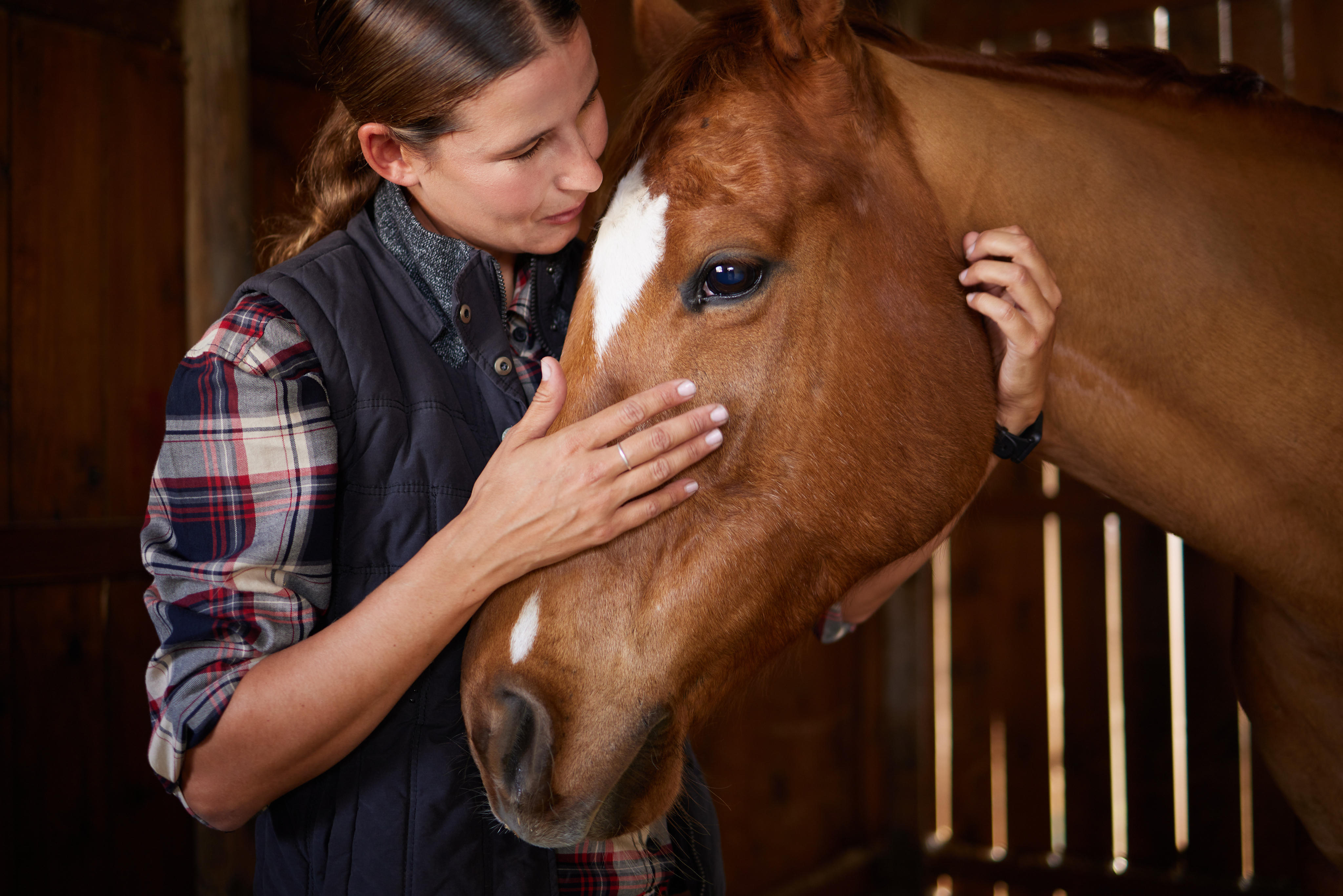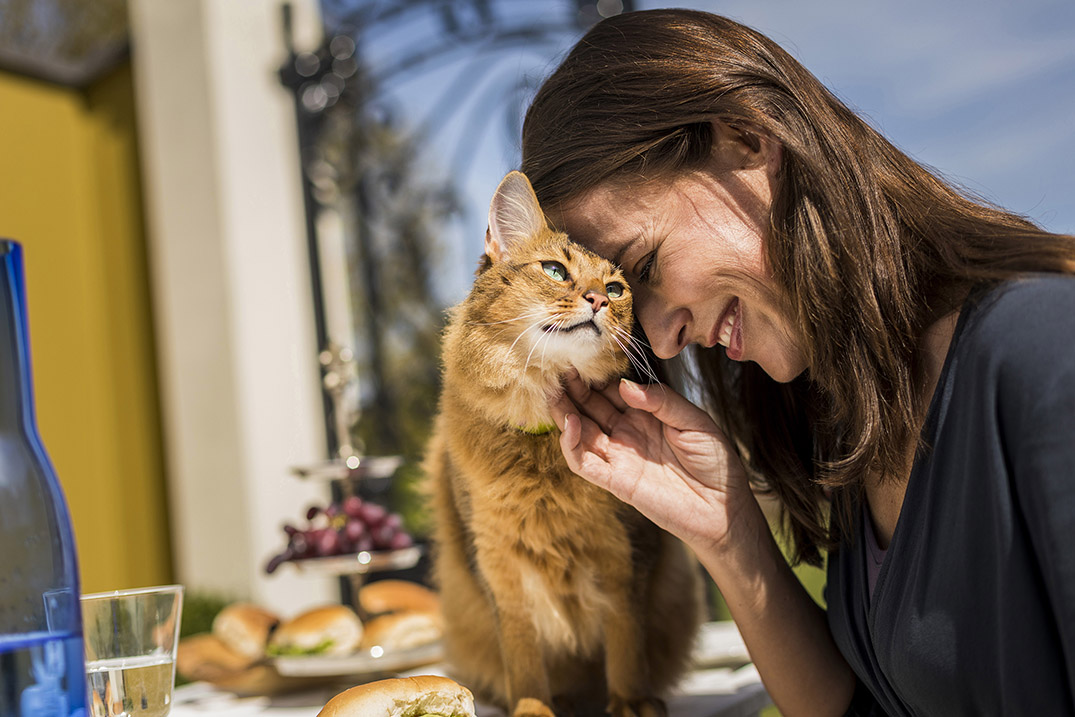Parasite Overview
The equine pinworm, Oxyuris equi, is more common in young horses but can infect horses of any age. Although larvae are known to cause inflammation in the large intestine, they do not usually cause clinical illness. The most common problem associated with pinworms is itching of the anus area caused by eggs deposited and adhering to the skin, which may progress to tail-rubbing.
Merck Animal Health Solutions
PANACUR® (fenbendazole) POWERPAC
PANACUR® (fenbendazole) Paste 10% is indicated for the control of large strongyles (Strongylus edentatus, S. equinus, S. vulgaris), encysted early third stage (hypobiotic), late third stage and fourth stage cyathostome larvae, small strongyles, pinworms (Oxyuris equi), ascarids (Parascaris equorum), and arteritis caused by fourth stage larvae of Strongylus vulgaris in horses.
PANACUR® SUSPENSION 10% (fenbendazole)
Cattle dewormer for the removal and control of lungworms, stomach worms, and intestinal worms.
Parasite Life Cycle
- Mature worms living in the horse’s gastrointestinal tract crawl out of the rectum and lay eggs on the skin around the horse’s tail.
- Eggs enter the environment in feces or tail rubbing.
- Eggs develop into larvae, which are consumed when the horse grazes.
- Larvae become adults and migrate to various parts of the horse’s body.
Clinical Signs
- Tail rubbing
- Hair loss around tail
- In severe cases, excoriation of the hindquarters or perineal skin
Risk Factors
- Age less than 3 years old
- Contaminated pasture
- Contaminated stalls or equipment (grooming supplies, tail wraps, fence posts, etc.)
Important Safety Information
Do not use in horses intended for human consumption.
References
- “AAEP Internal Parasite Control Guidelines,” American Association of Equine Practitioners, 2019, aaep.org/sites/default/files/2021-03/Internal_Parasite_Guidelines.pdf.
- Bob Judd, “Pinworms in Horses,” VeterinaryPartner, VIN, Aug. 24, 2015, veterinarypartner.vin.com/default.aspx?pid=19239&catId=102907&id=6934145.
- Martin K. Nielsen, “Oxyuris equi Infection in Horses,” Merck Veterinary Manual, www.merckvetmanual.com/digestive-system/gastrointestinal-parasites-of-horses/oxyuris-equi-infection-in-horses.
- “Pinworms in Horses,” Extension Foundation, Jan. 22, 2020, horses.extension.org/pinworms-in-horses.




 Go To United States
Go To United States Algeria
Algeria Argentina
Argentina Australia
Australia Austria
Austria Bahrain
Bahrain Belgium (Dutch)
Belgium (Dutch) Brazil
Brazil Canada (English)
Canada (English) Chile
Chile Colombia
Colombia Croatia
Croatia Czech Republic
Czech Republic Denmark
Denmark Ecuador
Ecuador Egypt
Egypt Finland
Finland France
France Germany
Germany Greece
Greece Hungary
Hungary India
India Indonesia
Indonesia Iraq
Iraq Ireland
Ireland Israel
Israel Italy
Italy Japan
Japan Jordan
Jordan Kuwait
Kuwait Lebanon
Lebanon Malaysia
Malaysia Mexico
Mexico Morocco
Morocco Netherlands
Netherlands New Zealand
New Zealand Norway
Norway Oman
Oman Panama
Panama Peru
Peru Philippines
Philippines Poland
Poland Portugal
Portugal Qatar
Qatar Romania
Romania Russian Federation
Russian Federation Saudi Arabia
Saudi Arabia South Africa
South Africa South Korea
South Korea Spain
Spain Sweden
Sweden Switzerland (French)
Switzerland (French) Taiwan
Taiwan Thailand
Thailand Tunisia
Tunisia Turkey
Turkey Ukraine
Ukraine United Arab Emirates
United Arab Emirates United Kingdom
United Kingdom Uruguay
Uruguay Yemen
Yemen Global
Global